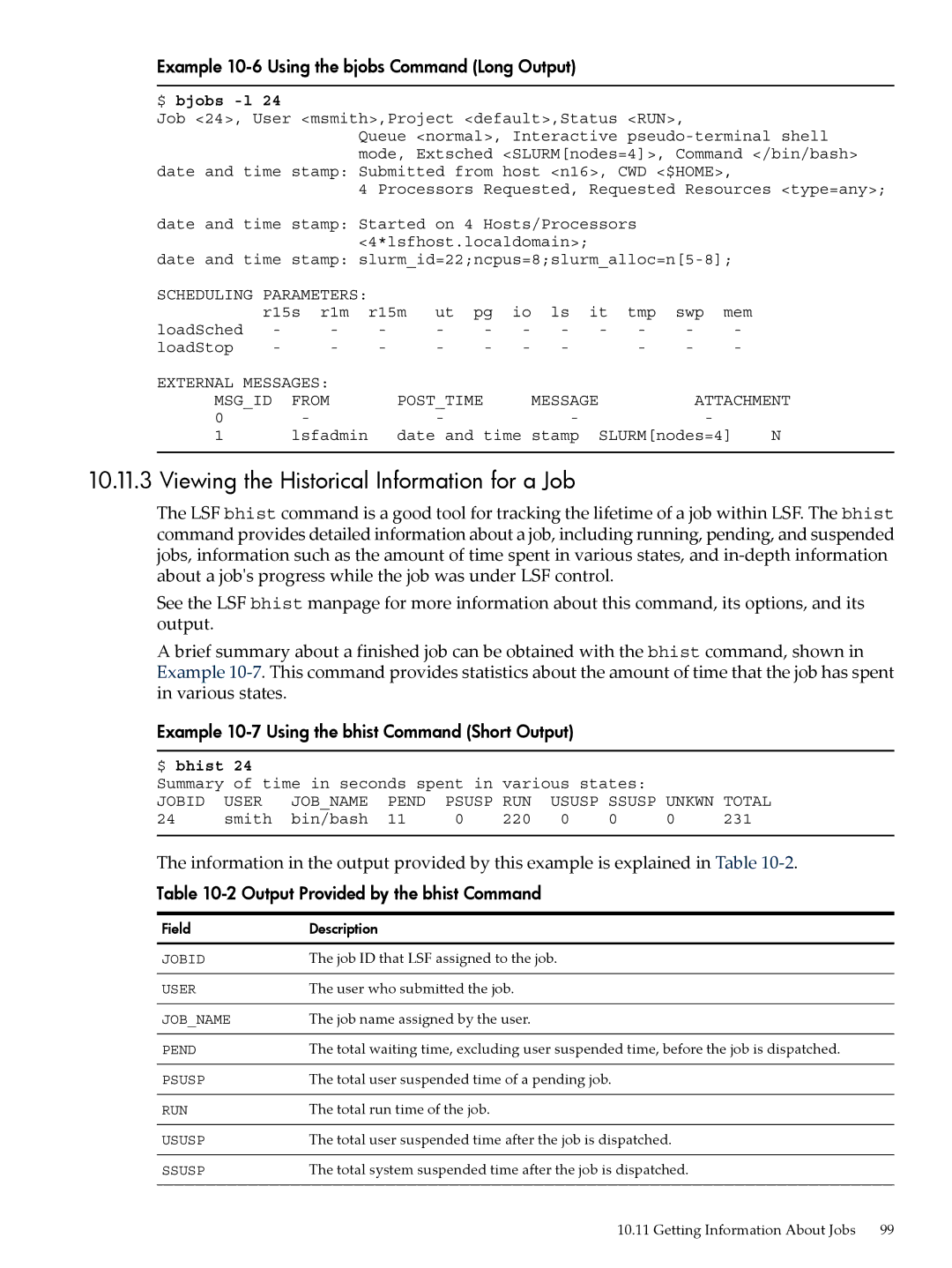
Example 10-6 Using the bjobs Command (Long Output)
$ bjobs -l 24
Job <24>, User <msmith>,Project <default>,Status <RUN>,
Queue <normal>, Interactive
date and time stamp: Submitted from host <n16>, CWD <$HOME>,
4 Processors Requested, Requested Resources <type=any>;
date and time stamp: Started on 4 Hosts/Processors <4*lsfhost.localdomain>;
date and time stamp:
SCHEDULING PARAMETERS: |
|
|
|
|
|
|
|
|
|
| ||
| r15s r1m | r15m | ut | pg | io | ls it | tmp | swp | mem |
| ||
loadSched | - | - | - | - | - | - | - | - | - | - | - |
|
loadStop | - | - | - | - | - | - | - |
| - | - | - |
|
EXTERNAL MESSAGES: |
|
|
|
|
|
|
|
|
|
| ||
MSG_ID | FROM | POST_TIME |
| MESSAGE |
|
| ATTACHMENT | |||||
0 |
| - |
| - |
|
| - |
|
|
| - |
|
1 |
| lsfadmin | date and time stamp | SLURM[nodes=4] | N | |||||||
10.11.3 Viewing the Historical Information for a Job
The LSF bhist command is a good tool for tracking the lifetime of a job within LSF. The bhist command provides detailed information about a job, including running, pending, and suspended jobs, information such as the amount of time spent in various states, and
See the LSF bhist manpage for more information about this command, its options, and its output.
A brief summary about a finished job can be obtained with the bhist command, shown in Example
Example 10-7 Using the bhist Command (Short Output)
$ bhist 24 |
|
|
|
|
|
|
|
|
|
| |
Summary of time in seconds | spent | in | various | states: |
|
| |||||
JOBID | USER | JOB_NAME | PEND | PSUSP | RUN | USUSP SSUSP | UNKWN | TOTAL | |||
24 | smith | bin/bash | 11 |
| 0 |
| 220 | 0 | 0 | 0 | 231 |
The information in the output provided by this example is explained in Table
Table 10-2 Output Provided by the bhist Command
Field | Description |
JOBID | The job ID that LSF assigned to the job. |
USER | The user who submitted the job. |
JOB_NAME | The job name assigned by the user. |
PEND | The total waiting time, excluding user suspended time, before the job is dispatched. |
PSUSP | The total user suspended time of a pending job. |
RUN | The total run time of the job. |
USUSP | The total user suspended time after the job is dispatched. |
SSUSP | The total system suspended time after the job is dispatched. |
10.11 Getting Information About Jobs 99
